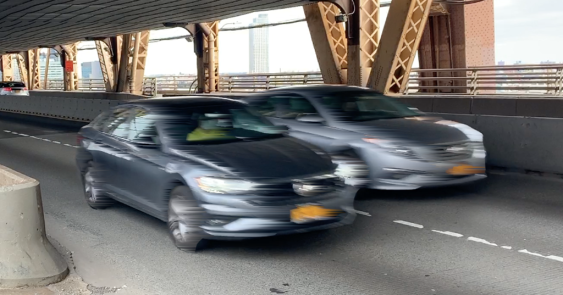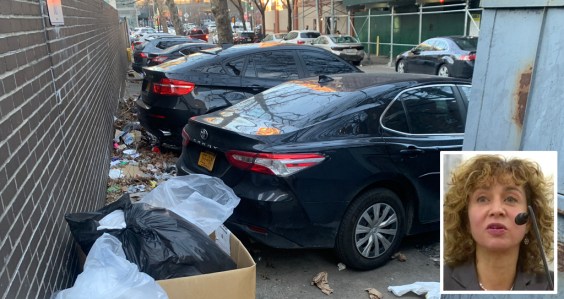How the heck can we get people to drive less?
That's one of the most vexing questions facing sustainable transportation advocates. Higher gas prices seem to do the trick, although anecdotal evidence suggests that watching an entire ecosystem being destroyed by a busted oil well doesn't have much effect.
The
fact is, too often we are engaging in guesswork and speculation when we
talk about strategies to reduce vehicle miles traveled (VMT). But
thanks to a new study of how land use affects transportation choices,
we now have a great new source of actual data. The study, a
meta-analysis of 50 previous studies, is called "Travel and the Built Environment," and it's published in the Summer 2010 issue of the Journal of the American Planning Association.
It's the result of several years' work by Reid Ewing of the University
of Utah and Robert Cervero of the University of California, Berkeley.
Kaid Benfield at NRDC Switchboard did a great job of summing up their conclusions:
What they found: location matters most when it comes to land use, driving and the environment.
The
study's key conclusion is that destination accessibility is by far the
most important land use factor in determining a household or person’s
amount of driving. To explain, 'destination accessibility' is a
technical term that describes a given location’s distance from common
trip destinations (and origins). It almost always favors central
locations within a region; the closer a house, neighborhood or office
is to downtown, the better its accessibility and the lower its rate of
driving. The authors found that such locations can be almost as
significant in reducing driving rates as other significant factors (e.g., neighborhood density, mixed land use, street design) combined.
Daniel Nairn at Discovering Urbanism also wrote about the study, pulling out a thread about connectivity on the street-grid level:
[The study is a] big win for connectivity, which is great because this is something that can actually be done. Some cities and states are starting to write codes to ensure a robust street network in new developments. Even more important is retrofitting connectionsinto existing networks. Hopefully these results will spur localities tolook for those odd scraps of land and consider punching a street ormulti-use trail through them. Although cycling was not considered inthis analysis, I can attest from personal experience that streetconnectivity is the single most important factor for enhancing safetyand convenience.
More excellent analysis, focusing on the importance of intersection density, can be found at Lawrence Aurbach's Ped Shed.
More from around the network: Livin in the Bike Lane on the effect of air pollution on bicyclists (this is not good news, folks). On Two Wheels wonders if Montréal could benefit from fewer traffic signs. And The Bellows considers the benefits of congestion.





